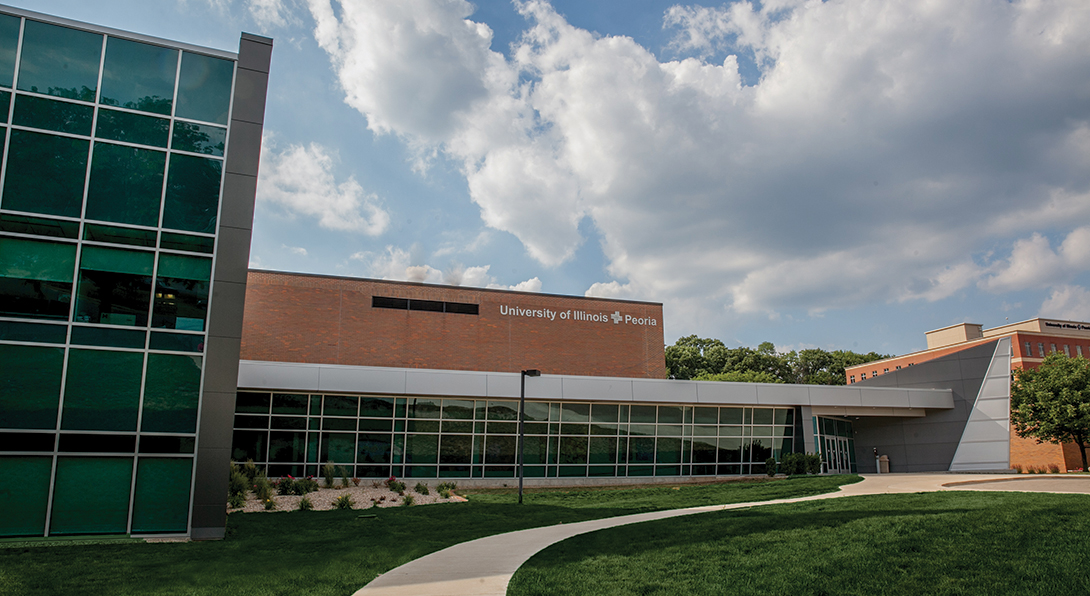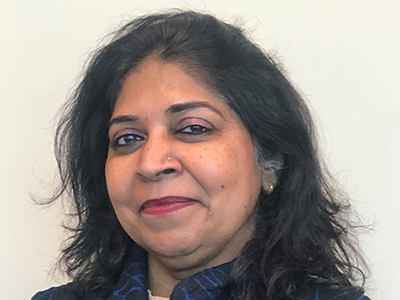Center 4 Health Research Receives $185,000 Grant Funding to Support Research for Breast Cancer, Heart Failure Projects

The Center 4 Health Research (C4HR) at the University of Illinois College of Medicine Peoria received two grants with funding from the Community Health Advocacy program, a partnership of OSF HealthCare and the University of Illinois Chicago to address health and wellness challenges in urban communities.
Funding for the two grants totals more than $185,000. One study will take a closer look at breast cancer recurrency and the use of Artificial Intelligence (AI) tools to predict recurrence rates among survivors. The second study will focus on patients with heart failure and the use of an OSF-App and AI models to predict heart failure related hospital readmission rates in high-risk patients presenting at OSF.
“Predicting Breast Cancer Recurrence in Survivorship: A Data-Driven Approach”
Funded by the Community Health Advocacy Program for $92,000
Principal Investigator: Soni Dodani MD, FCPS, MSc, PhD, FAHA
Co-Principal Investigator: Dr. Mackenzie McGee, MD (OSF)
Summary: Breast cancer remains a leading cause of cancer-related fatalities worldwide, claiming approximately 685,000 lives in 2020. Despite notable progress in early detection and treatment, the impact of breast cancer is not evenly distributed across the population, giving rise to health disparities in incidence, outcomes, and prognosis. Understanding and addressing these disparities is crucial to reducing the unequal burden of breast cancer and its impact on cancer-free survival rates within various communities. Survival rates for breast cancer are influenced by a range of factors related to health disparities, including disease stage at diagnosis, treatment methods, and access to healthcare services. In developed nations, localized breast cancer often boasts a 5-year survival rate exceeding 90%, whereas metastatic breast cancer typically exhibits lower survival rates. Post-treatment cancer care emphasizes survivorship programs, which encompass comprehensive services aimed at prioritizing the overall health and well-being of cancer survivors. Evaluating the effectiveness of a cancer survivorship program presents inherent challenges, particularly in predicting the potential recurrence of cancer in patients who have achieved remission. This task is multifaceted, requiring the monitoring of diverse factors and the utilization of medical data. This project aims to address this challenge by developing and validating a multivariate machine learning (ML) model specifically designed to anticipate breast cancer recurrence among survivors in the OSF HealthCare Cancer Center. The model will leverage patient data derived from the survivorship clinic records, OSF-EMR, laboratory test results, and treatment histories. By harnessing these data sources, the ML-predictive models will generate risk scores, facilitating the identification of high-risk breast cancer survivors who may be at risk of cancer recurrence. In essence, this research endeavors to enhance the precision of breast cancer recurrence prognosis and contribute to more effective outcomes within the survivorship program, ultimately benefiting survivors and improving their quality of life.
“Promoting Health Equity: Utilizing a Heart Failure App and AI/ Machine Learning to Predict Heart Failure-Related Readmission Rates in High-Risk Patients Presenting at OSF-Saint Francis Medical Center”
Funded by the Community Health Advocacy Program for $93,000
Principal Investigator: Soni Dodani MD, FCPS, MSc, PhD, FAHA,
Co-Principal Investigator: Roopa Foulger (OSF)
Summary: Heart disease remains the leading cause of mortality in the United States, with heart failure (HF) significantly impacting over five million individuals. The economic burden of HF is substantial, with direct costs exceeding $30.7 billion annually in 2020, primarily attributed to medical expenses. Notably, half of HF-related readmissions are preventable if we can effectively predict high-risk patient groups. Yet, our understanding of readmissions following HF and the contributing factors remains limited, and existing clinical variables alone struggle to provide accurate 30-day readmission predictions. To address these challenges, we propose leveraging a smartphone-based HF App capable of collecting patient-reported outcomes and clinical data while offering valuable HF management insights. In pursuit of improved risk models, our research hypothesis posits that combining the HF App and Electronic Medical Records (EMR) data will facilitate the prediction of HF-related readmission rates through various AI/ML models. In this project we will identify all HF admissions in 2023 at St. Francis Medical Center using ICD-10 codes. A random sample of 60 patients will receive the newly developed OSF-HF App, where data on patient-reported outcomes, treatment adherence, and compliance will be collected for 8 weeks. The levels of adherence to the regimen will be assessed, and a novel hidden semi-Markov model will be developed using collected sensor data and known readmission events to continuously predict readmission risk. Additionally, predictions of patient adherence levels will be made using EHR data. The anticipated outcomes of this research include foundational tools for predicting HF-related admission rates based on predictive markers. The data obtained will enable future randomized trials targeting computational patient profiles with tailored incentives grounded in behavioral economics to effectively reduce hospital readmissions.
About the Center 4 Health Research

About the Center 4 Health Research
The newly established Center 4 Health Research at UICOMP covers population health, health equity, outcomes and informatics research and conducts population health research, advancing health equity through education, research, community outreach and engagement, and evaluating health outcomes of health services and health care delivery models.
Dr. Sunita Dodani (pictured) is the founding director of the Center 4 Health Research.